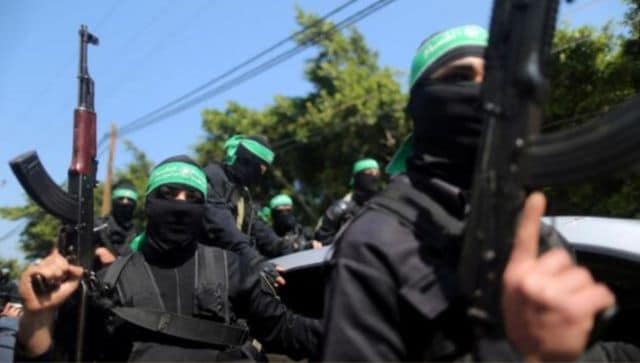Turkey inches toward ratifying Sweden’s NATO bid
IZMIR, Turkey — Ankara and Stockholm will come together next week in an attempt to clear the obstacles to Sweden’s NATO accession as pressure grows on Turkey to ratify Sweden’s membership bid ahead of the alliance’s summit in mid-July.
The announcement of a new round of talks between Sweden and Turkey follows a charm offensive by NATO Secretary-General Jens Stoltenberg and Carl Bildt, Sweden’s former prime minister who has political sway with both President Recep Tayyip Erdogan and the current Swedish government. Both attended Erdogan’s swearing-in ceremony over the weekend. Stoltenberg also held a separate meeting with Erdogan as well as the foreign and defense ministers in the new Cabinet Sunday, during which the two discussed the alliance’s July 11-12 summit in Vilnius, Lithuania, where many NATO members would like to see Sweden sit beside newcomer Finland as a member.
Urging Ankara to ratify Sweden’s accession as soon as possible, Stoltenberg maintained that Stockholm had fulfilled its pledges on addressing Turkey’s security concerns such as stepping up counter-terrorism cooperation, including against the Kurdistan Workers Party (PKK), which is on the terror organizations list of Ankara, Washington and Brussels.
“President Erdogan and I agreed today that the permanent joint mechanism should meet again in the week starting on June 12,” Stoltenberg said Sunday, referring to the diplomatic platform set up last year to address Turkey’s requests from the two Nordic states for greenlighting their accession to NATO. The meeting, expected to be held at senior officials level, will also include Finland, although the Turkish parliament unanimously approved Helsinki’s membership in March.
Swedish Prime Minister Ulf Kristersson said Monday that he had a phone conversation with Stoltenberg earlier in the day, and he agreed with Stoltenberg that Sweden had done “all it could” to address Turkey’s security concerns. “We have fulfilled our obligations, including changing our laws. The decision now rests with Ankara,” he was quoted as saying by Turkey’s Anadolu agency in a presser in Madrid.
NATO heavyweights such as the United States, United Kingdom and Germany also put pressure on Turkey by gently prodding Turkey’s new foreign minister, former intelligence tsar Hakan Fidan, by referring to the NATO alliance in their congratulatory messages.
Congratulations to Hakan Fidan, Turkiye’s new Foreign Minister. Looking forward to continuing to work with @MFATurkiye as valued @NATO Allies and partners.
— Secretary Antony Blinken (@SecBlinken) June 4, 2023
Brushing aside their history of neutrality last May, Sweden and Finland applied for NATO membership in the wake of Russia’s invasion of Ukraine. But Turkey said the two aspiring members had to address Ankara’s security concerns to get a green light. In a trilateral memorandum, Ankara urged Stockholm and Helsinki to keep a tighter rein on groups that Turkey considers a threat to its security, lift arms embargoes against Turkey and extradite or deport more than a hundred people Turkey considered “terror suspects” who lived in the two Nordic states.
Unlike Finland, Sweden, which has liberal laws on freedom of expression and assembly, has not yet persuaded Ankara that it has fulfilled its commitments, notably after Stockholm failed to stop a Danish-Swedish ultra-right politician from burning the Quran in front of the Turkish Embassy last January.
Give Swedes a chance
To prevent a new crisis over the anti-NATO and anti-Turkey demonstrations in Stockholm on June 4, Stoltenberg told Erdogan that blocking Sweden’s entry over protests would be to play into their hands. “I understand it is hard to see demonstrations against Turkey, and against NATO, in Sweden … But we should remember why these demonstrations are taking place. The organizers want to stop Sweden from joining NATO. They want to block Sweden’s counter-terrorism cooperation with Turkey. And they want to make NATO weaker. We should not allow them to succeed,” he said in Istanbul after talks with Erdogan.
The NATO chief also argued that Sweden has taken “significant concrete steps” to meet Turkey’s concerns, pointing out that crucial new anti-terrorism legislation came into force on June 1 in addition to the constitutional amendments and lifting of embargoes against Turkey earlier this year.
The announcement of a new round of talks immediately after the change of guard in the Foreign Ministry and Turkey’s muted response to the anti-NATO and anti-Turkey demonstrations in Stockholm (which in the past were usually followed by a terse statement and a summoning of the Swedish ambassador) have led to cautious optimism among analysts in Turkey and abroad.
Right time, right man?
Paul Levin, director of Stockholm University’s Institute for Turkish Studies, told Al-Monitor that now is a good time for Erdogan to show his pragmatism. “In Turkey, there is a new Cabinet, there are no pending elections, and no chance for Erdogan to look weak on his stance against terrorism before an electorate,” he said. “In Sweden, the last piece of the government’s anti-terrorism laws has come into force as of June 1 and, for the first time, a public prosecutor is expected to open extortion and financing terror charges this Friday.”
“I am cautiously optimistic that the process on Sweden’s accession is moving in the right direction now that there is a new post-election era,” Fatih Ceylan, the former ambassador to NATO who currently heads the Ankara Policy Institute, told Al-Monitor Monday.
According to Ceylan, it would be difficult for Ankara to continue to drag its feet after the political and legal moves by Sweden. “This would also alienate friendly nations within NATO. My analysis is that Ankara would adopt a more positive attitude in this new period that starts on the week of June 12.”
Ceylan said that Turkey could continue to push for its security concerns once Sweden was part of the military alliance. “Though NATO does not have a ‘terrorist organizations list’ like the European Union, it does have considerable acquis [body of regulations, measures and methods of cooperation] on anti-terrorism, developed since 9/11 and enhanced in 2016,” he said.
“Intel chief Fidan in the driver’s seat as Turkey’s foreign minister has solidified Sweden’s chances to enter NATO, so long as Stockholm delivers to Ankara some solid items per its new counter-terrorism law,” Soner Cagaptay tweeted as Fidan took the helm of the Foreign Ministry from Mevlut Cavusoglu, who has held the post for 8.5 years. Cagaptay said that it was unlikely that Fidan would want his initial public offering to be as a great disruptor to Turkey’s relations with the West.
Two scenarios
In the handover ceremony Monday, Fidan — an elusive figure who does not have a Twitter account — declared he was honored to join the Foreign Ministry on the centennial of the Republic of Turkey and the 500th anniversary of the establishment of Turkish diplomacy. “During my tenure, I will do my best for the unity, security and prosperity of our state … in line with the vision and values our president — who has been reelected with the strong support of our people — represent,” he said.
Ceylan focuses on two scenarios leading up to Vilnius. “The good scenario is that Turkey completes the ratification before mid-July and Sweden, like Finland, attends the Vilnius summit as a NATO member. The bad scenario is that Turkey continues its bargaining right into the summit and tries to get an 11th-hour agreement, alienating even friendly nations in NATO,” he said. In that case, as in last year’s Madrid summit in which Erdogan played brinkmanship games in the alliance, there would be no ratification but a declaration of intent.
Levin adds a third. “Erdogan would continue to block Sweden’s accession, which may also happen, particularly if something radical and unexpected — such as Quran or Turkish flag burning — happens.”
Turkey to send a battalion to Kosovo
On Sunday, Stoltenberg also thanked Erdogan for Turkey’s decision to send a commando battalion to Kosovo in response to a NATO request to send 700 more soldiers to join the peacekeeping operation following recent violent unrest.
The Turkish Defense Ministry shared a video Sunday showing troops arriving in Kosovo wearing the logo of the Kosovo Force, a NATO-led peacekeeping mission established in 1999. A ministry statement called for “restraint and constructive dialogue” between Kosovo and Serbia, saying the conflict could harm regional security and stability.



